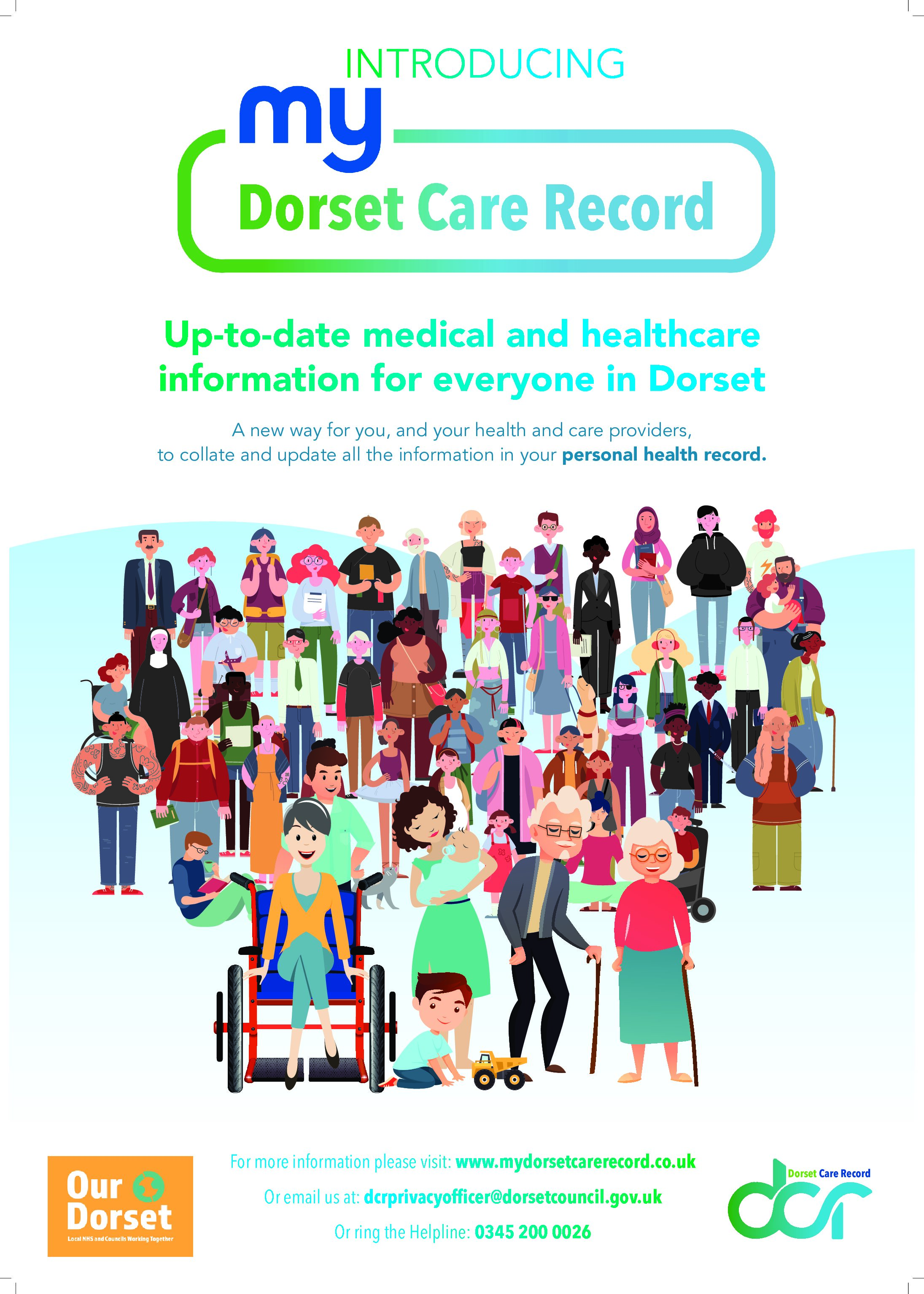
In our latest think-piece, our project manager Theresa Smith outlines the steps taken to create a range of pilots for our patient portal.
Following go-live of my Dorset Care Record (myDCR), the patient portal element of the Dorset Care Record, in March, the next step has been to start rolling out myDCR to specific individuals across the county.
myDCR, though still a work in progress, already supports a wide range of functions, including appointment information, links to additional resources/websites, the ability to share files (photographs, documents, etc.) with clinicians and the option to receive clinic outcome letters electronically rather than through the post.
It is also possible to create a personal support network of friends and family members and to indicate consent to share information, which enables professionals to respond more efficiently to enquiries. Another really useful piece of functionality is Goals and Actions, where individuals and the professionals involved in their care can create and review targets set to support wellbeing.
For the initial pilot, certain clinics at both Dorset County Hospital (DCH) and University Hospitals Dorset (UHD) were identified, and then began extensive discussion and collaboration with the relevant clinicians, to ensure they were clear about both the Dorset Care Record (DCR) and myDCR.
This involved a large number of virtual meetings to demonstrate the systems and to answer questions, as well as comprehensive on-site support. One of the key lessons learnt from the pilot is the huge importance of face-to-face interaction between the DCR team and colleagues on site in the hospitals.
A Project Plan was agreed, and processes put in place to promote myDCR to patients, to send the myDCR invites and to follow up when patients did not register for their account as expected. The Diabetes and Rheumatology clinics at DCH agreed to pilot the sending of clinic outcome letters via myDCR, and Rheumatology and Motor Neurone Disease clinics at UHD agreed to pilot sharing files and setting goals and actions.
For example, a goal could be set collaboratively by the clinician and the patient around making dietary changes to improve patient symptoms. Actions could then be linked to the goal, to support the patient with achieving their goal, such as eating more protein in the form of fish and white meat, buying low fat alternatives where possible and switching to brown bread, rice and pasta. All goals and actions can be viewed and updated by either the clinician or the patient, at any time.
Whilst the initial plan was for partners involved in the pilot to undertake the administration required, this has been tricky due to the pressure on the hospital sector. Therefore, the DCR team have undertaken most of the administration. Clear handover processes alongside identification of appropriate partner resources will need to be implemented, in order for the pilot to move to business as usual.
Evaluation of the myDCR pilot has taken the form of weekly statistical analysis, which have also been presented to the monthly DCR Programme Board, and two sets of questionnaires: one for professionals and one for citizens. Feedback from the questionnaires will inform lessons learnt going forward and will support further development of the myDCR platform, to maximise positive end user experience.
Expected benefits for the pilot use cases were captured well before the pilot commenced, and these will be reviewed and quantified as part of the evaluation process. Key benefits include considerable savings on printing and postage, improved data security, the option for communication between patient and clinician without a face-to-face appointment and enabling citizens to securely store a lot of their clinical information in one place.
- A selection of myDCR user guides can be found on our website: How do I use myDCR? – Dorset Care Record (dorsetcouncil.gov.uk)
Ends


